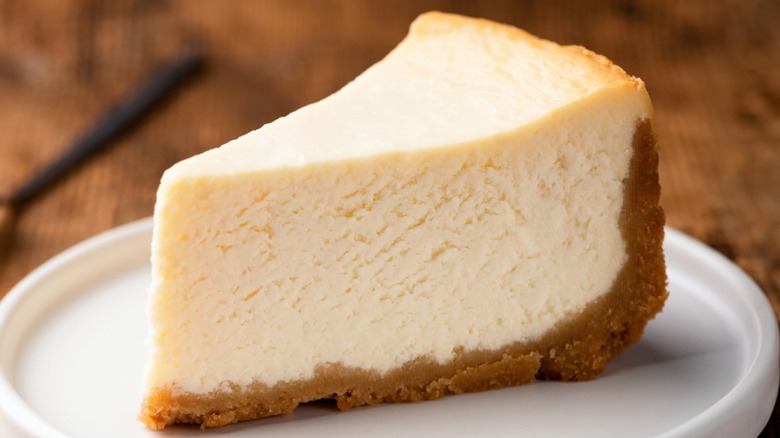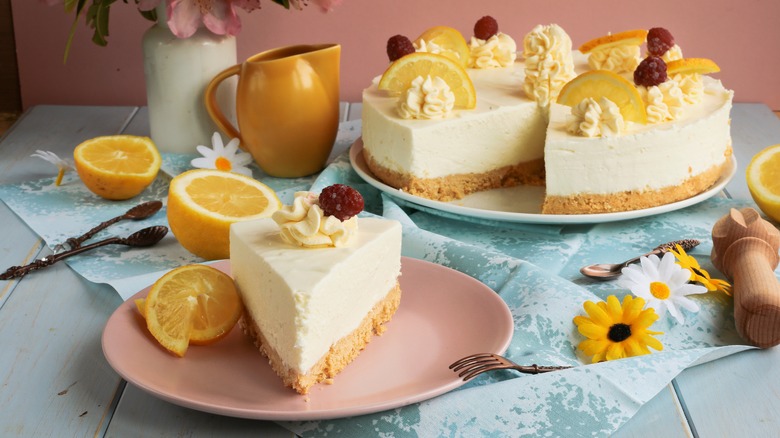The Real Reason You Shouldn't Go Low-Fat When Making Cheesecake
First enjoyed by the ancient Greeks, the decadent dessert we know today as cheesecake has been a culinary favorite for centuries (via Greek Reporter). While some modern bakers may try to find creative ways to make the dessert into a somewhat healthier confection, the Greeks used cheesecake as a type of energy boost similar to the modern-day energy drink. Some anthropologists have even suggested that cheesecake was used as fuel for athletes during the first Olympic Games in Athens. Now that's a prize we can get behind!
The cheesecake we know and love today originated in New York in 1929, giving the food its iconic name, New York Cheesecake (via What's Cooking America). The culinary symbol of New York City is credited to Arnold Reuben. While other bakers used cottage cheese in their cakes, Reuben introduced the newly invented cream cheese to the recipes, giving cheesecake the rich and creamy texture it is famous for today.
Even though cheesecake may be delicious, it's not hard to see that the cake isn't exactly diet food. There are a number of cheesecake recipes hitting the internet that promise low-fat cheesecakes but according to certain baking authorities, low-fat cheesecakes are a kitchen faux pas.
Don't skip the fat when making cheesecake
Despite the desire to skip out on the fat, using full-fat cream cheese in your cheesecake recipe is actually the secret to mastering the cake's famous texture and helps the confection to set properly. The reason for this is the difference in moisture content between full-fat and low-fat cream cheese. Because low-fat cream cheese contains significantly more moisture than the regular variety, using it in a recipe will often result in a runny end result (via Science Direct).
In case you were curious about the true difference between full-fat cheesecake and its reduced-fat cousin, food scientists have put the question to the test. After testing both varieties of cheesecake with a scanning electron microscope to study the effects of full-fat as an ingredient in food, researchers discovered that full-fat cream cheese is largely responsible for the cake's signature density (via ResearchGate). Despite the win for full-fat cheesecake in the texture category, low-fat cheesecake scored higher in tests of mouthfeel.
If a low-fat dessert is a must, plenty of recipes exist that are specially adapted for low-fat cream cheese. These recipes use slight variations in the amounts of dry ingredients in the cake in order to compensate for the extra moisture. No matter what type of cheesecake you opt for, it's certain to be delicious regardless of the fat content.

